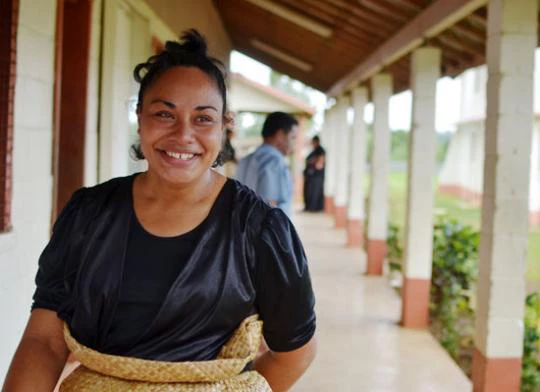
On gender equality – it is no secret that the Pacific Islands is lagging.
The region is home to some of the world’s highest domestic violence rates. Economic empowerment of women in many countries, particularly in Melanesia, is desperately low. Women lack access to finance, land, jobs and income. In my country, Solomon Islands, there is only one woman in parliament, and there are none in Vanuatu and Federated States of Micronesia – a country which has never yet seen a woman elected.
Of course the reality is always more complicated than a data sheet. I have grown up among inspiring women and have been motivated by very strong Pacific Islanders like Shamima Ali in Fiji and Ethel Sigimanu in Solomon Islands, who have battled so hard to put gender equality on the agenda.
I know in turn that there are many men who, just like me, care immensely about the issue of women’s rights and gender equality: men who recognize the social and economic benefits of educating their sisters and daughters, and encouraging their wives to be active in the workforce or to start businesses themselves.
I also believe that things are changing. In many churches in the Pacific, women are increasingly given leading roles in their congregations and conducting their own services. While still very few, more Pacific women have been elected to positions in parliament in places where this has been notoriously challenging: at the last elections, we counted three in Papua New Guinea and three to the Senate in Palau.
And from my own experience at the World Bank Group, I have been proud to see women taking the lead in some of our projects. In Buni village in Solomon Islands, women told me how they came together under a crowded mango tree to outvote men on an initiative that would boost their earnings, while an overwhelming majority of community leaders reported that this same project, the Rural Development Program, had made women more vocal and active in their communities.
Of course examples like these are not enough. I want to see more women leaders – more women running businesses, university departments, media outlets and political parties and speaking out in the community. I know that Pacific women are just as smart and just as dedicated as their male counterparts; they make critical decisions every day and have a huge wealth of knowledge at their fingertips.
And women’s leadership matters. It matters if we want to get the best people in the top positions in our societies, rather than excluding half of all possible candidates and all that they can offer. Currently almost half of women’s productive potential globally is unutilized. A Goldman Sachs study found that narrowing the gender gap in employment could, by 2020, increase per capita income in emerging markets like Solomon Islands by as much as 14 percent.
For change to happen, societies need to recognize that women’s leadership is pivotal. It’s an issue for governments but also for schools, universities, parents and communities, to encourage girls as well as boys to take on leadership roles. It’s an issue for workplaces and businesses, to offer opportunities for women including on boards and committees. We need data on women’s participation in the economy, and concrete action plans to address the barriers.
March 8 is International Women’s Day and the theme is ‘Inspiring Change’. That change is starting to unfurl, but it needs broader help and support. We at the World Bank Group believe that we all need to be “inspired” – to recognize the work that women are doing and help them achieve their potential in our homes, communities, businesses and society overall. And we need good Pacific Island leaders, both men and women, to achieve the change we seek.


Join the Conversation